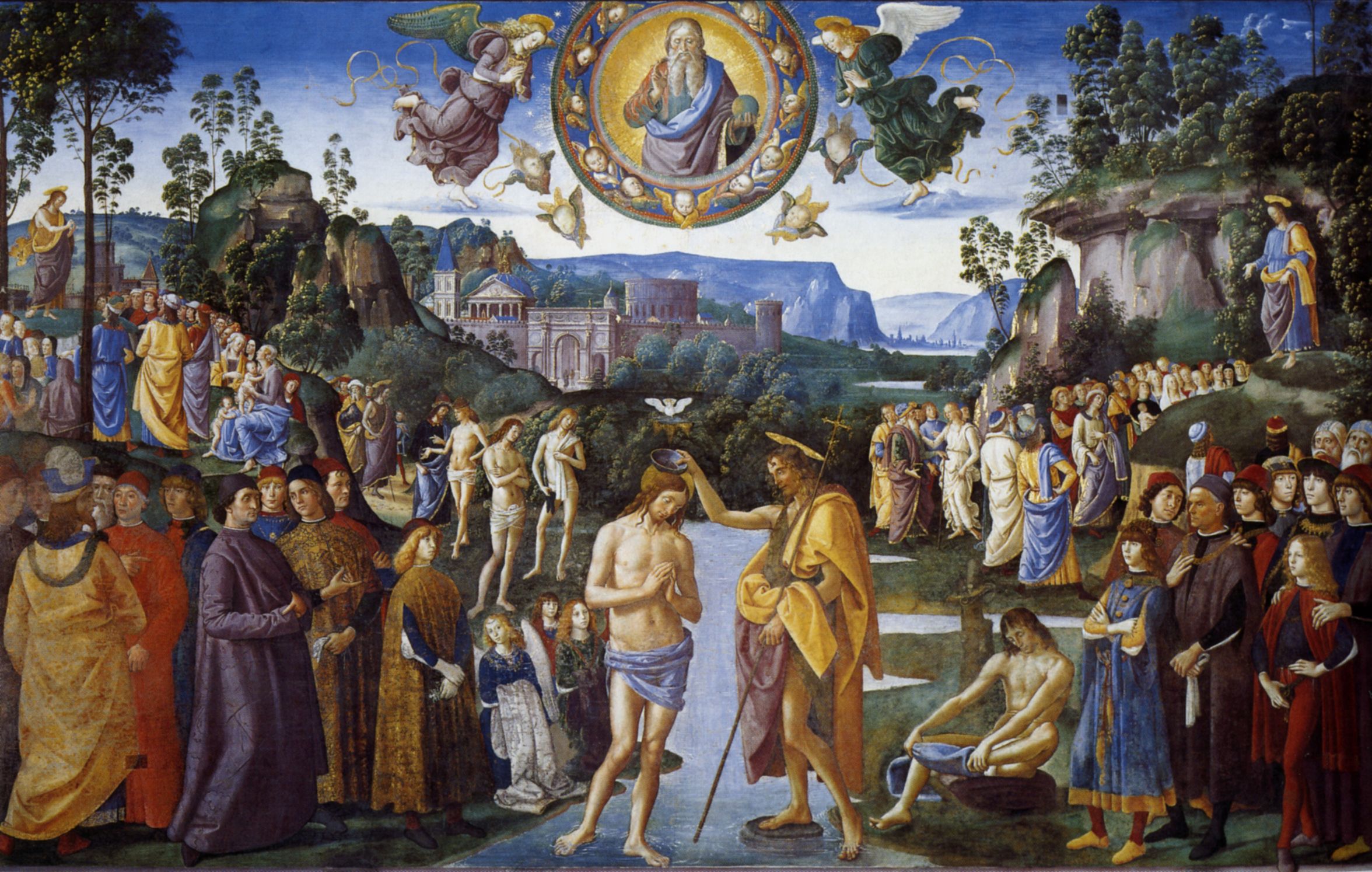Today’s guest post is by Brandon Rappuhn, a Logos marketing copywriter.
Yesterday was the feast of the Baptism of Our Lord. The baptism of Jesus is one of the most pivotal moments in human history (after the birth of Jesus and his crucifixion) in which God the Father, Jesus our Lord, and the Holy Spirit all show up. It’s an event rich for theological study—in this one event, there is far more to write about than has been written; far more to explore than has yet been explored.
Instead of delving into my Verbum library, I decided to look ahead at resources I’m personally excited to have in Logos someday. For a succinct and theologically reliable study of the event we honor on this feast day, I looked to our Holy Father and his recent homilies:
The Baptism of Jesus, which we are commemorating today, fits into this logic of humility and solidarity: it is the action of the One who wanted to make himself one of us in everything and who truly joined the line of sinners; he, who knew no sin, let himself be treated as a sinner (cf. 2 Cor 5:21), to take upon his shoulders the burden of the sin of all humanity, including our own sin. He is the ‘servant’ of Yahweh of whom the Prophet Isaiah spoke in the First Reading (cf. 42:1). His humility is dictated by the desire to establish full communion with humanity, by the desire to bring about true solidarity with man and with his human condition.
Jesus’ action anticipates the Cross, his acceptance of death for man’s sins. This act of abasement, by which Jesus wanted to comply totally with the loving plan of the Father and to conform himself with us, expresses the full harmony of will and intentions that exists between the Persons of the Most Holy Trinity. For this act of love, the Spirit of God revealed himself and descended to alight upon Jesus as a dove, and at that moment the love which unites Jesus to the Father was witnessed to all who were present at the Baptism by a voice from Heaven that everyone heard.
The Father reveals openly to human beings, to us, the profound communion that binds him to the Son: the voice that resounds from on high testifies that Jesus is obedient to the Father in all things and that this obedience is an expression of the love that unites them to each other.
Continuing a similar thought, just last year on this feast, he said before the Angelus,
Moreover, let us bear in mind once again that no individual makes him or herself a human being. We are born without doing anything ourselves, the passivity of being born precedes the activity of what we ourselves do. It is also the same at the level of being Christian: no one can become Christian solely by one’s own will, being Christian is also a gift that comes before our own action: we must be reborn in a new birth. St. John says: ‘to all who received him . . . he gave power to become children of God’ (Jn 1:12).
This is the meaning of the Sacrament of Baptism. Baptism is this new birth that precedes our own action. With our faith we can go to meet Christ, but he alone can make us Christian and give to our will and to this desire of ours the response, dignity and power to become children of God, which we ourselves do not possess.
Dear friends, this Sunday of the Baptism of the Lord brings Christmas Time to an end. Let us give thanks to God for this great mystery which is a source of regeneration for the Church and for the whole world. God made himself the Son of Man so that man might become a son of God. Let us therefore renew our joy in being children, as men and women and as Christians; born and reborn to a new divine existence. Born from the love of a father and a mother and reborn from the love of God through Baptism.
Appropriately, as we move out of the Christmas season and look forward soon to Lent, our focus returns to Christ. Without Christ, our baptism is worthless. With Christ’s baptism, we are welcomed into the family of God as children. Permit me to reiterate:
“Let us therefore renew our joy in being children, as men and women and as Christians; born and reborn to a new divine existence.”






